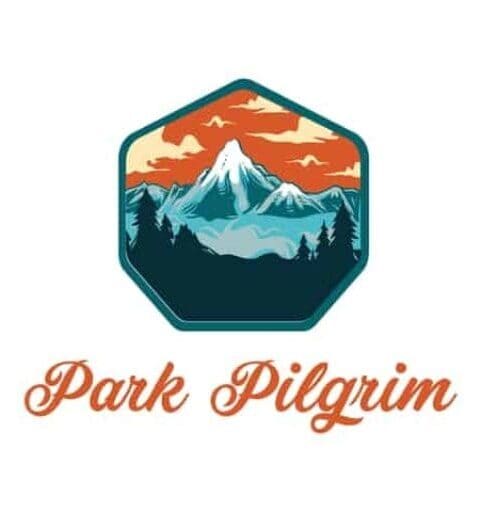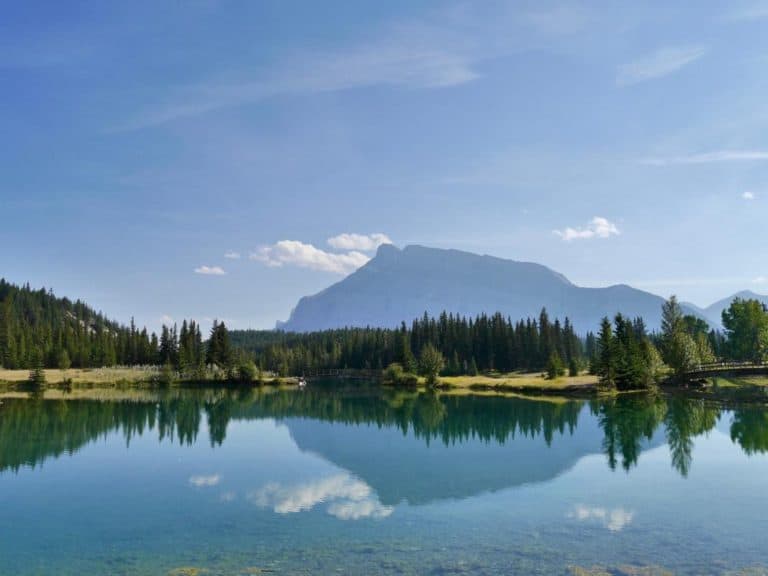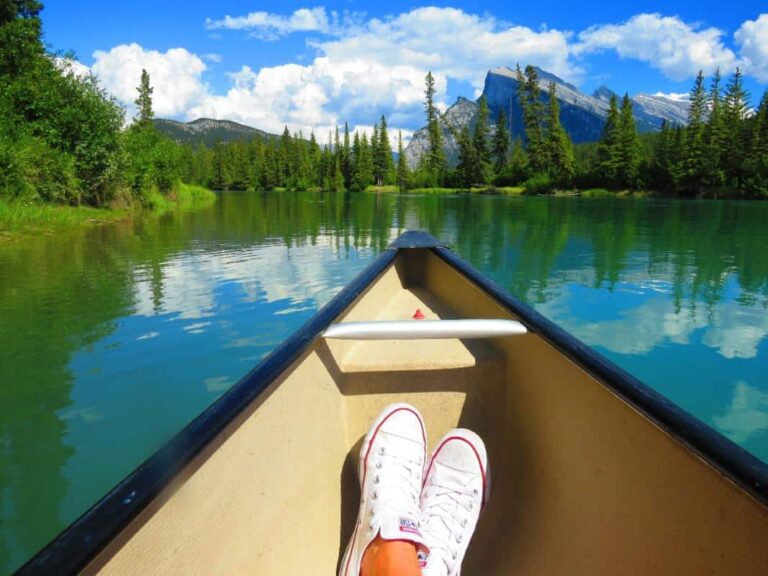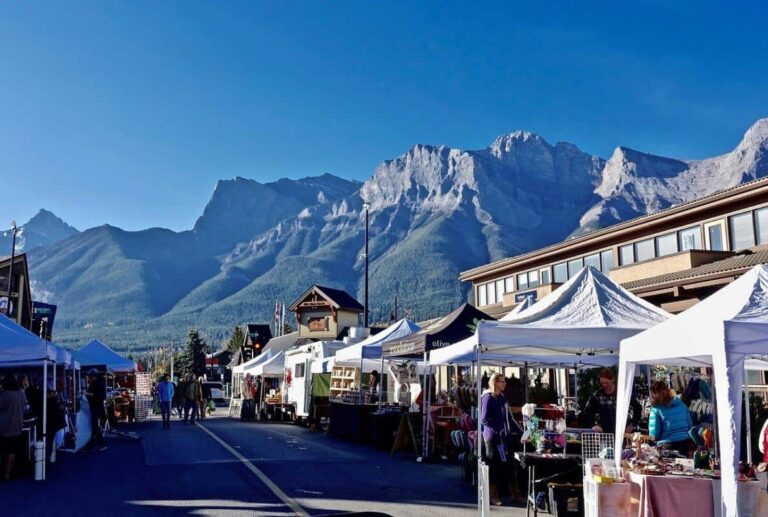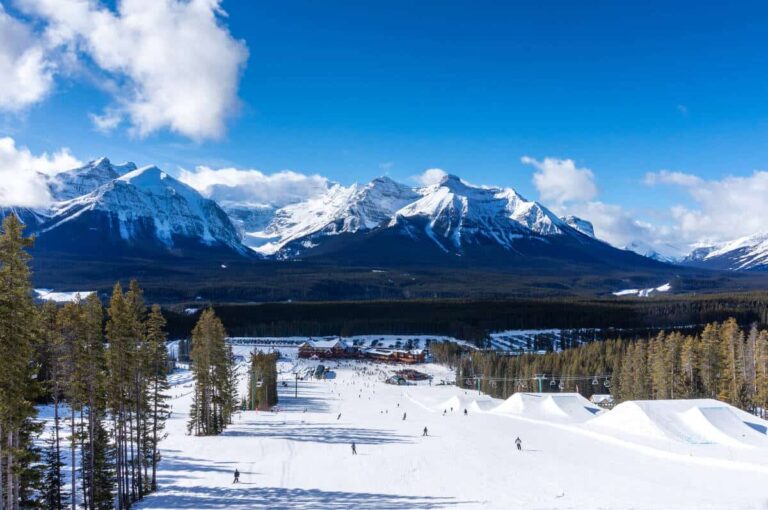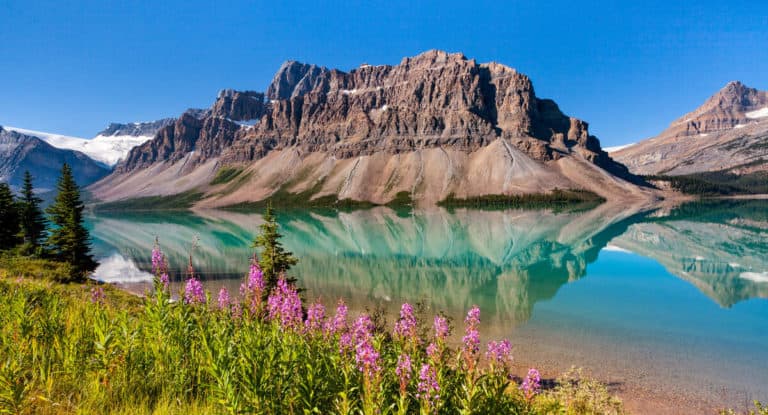Pros and Cons of a Working Holiday in Banff (Benefits and Struggles)
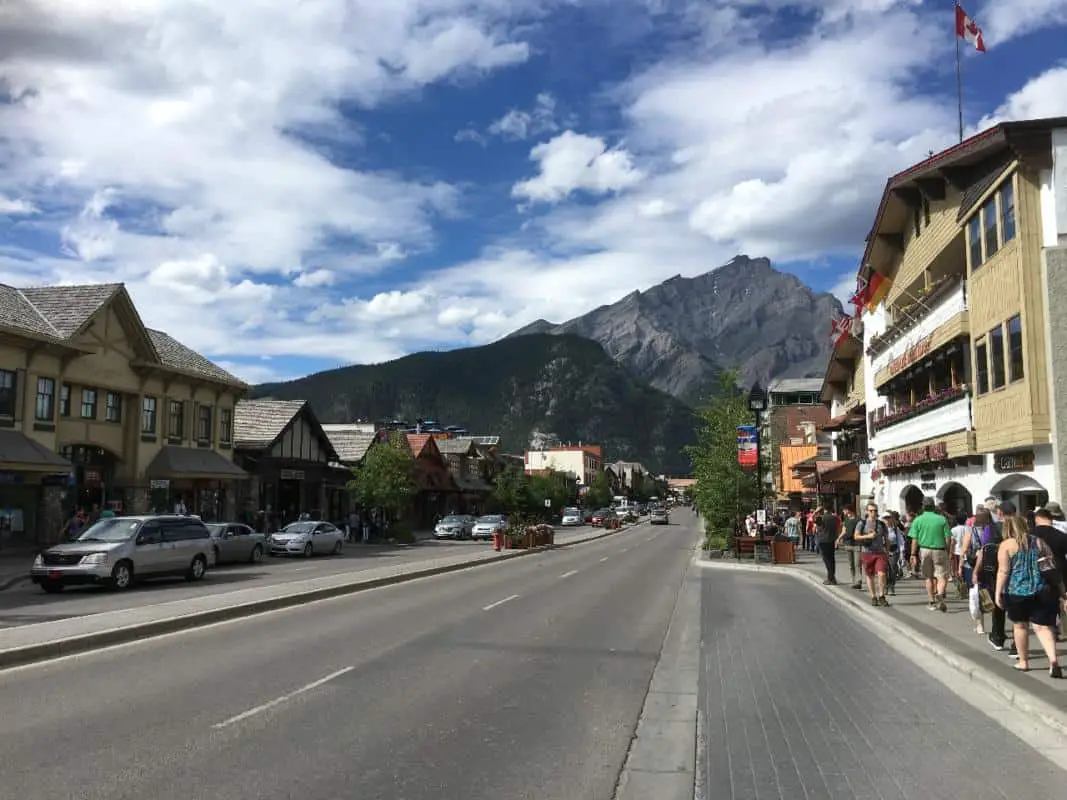
A working holiday in Banff National Park sounds incredibly tempting for many young people. However, there are some pros and cons to consider. Below, I laid them out for you.
The Canadian Working Holiday Programme allows foreigners from selected countries to travel and work in Canada. It is aimed at young people between 18 and 35 years old.
Successfully applying for this program (also known as the International Experience Canada ) means you could also work in Banff. It’s a fantastic opportunity that you’ll get only once in your life.
Applying when you have just finished college or university seems to be the perfect moment as a significant part of the temporary workers in Banff have just completed their studies. I can testify to that because I did it myself.
And to this day, I can say it was the best time of my life. It might become the best time of your life as well. It’s difficult to imagine what it will be like, but the pros and cons below will at least give you a taste of the good and the ‘bad’ things to expect. Let’s have a look.
Pros of a Working Holiday in Banff
The list of pros of a working holiday in Banff is longer than the cons in this article. As it should be. With all the important decisions you need to make in your life, the good should outweigh the bad, right?
Besides, in my own experience, the cons are really very minor compared to all the good things a working holiday in Banff will bring you.
I mean, many years and valuable life experiences later, I still look at it as the best time of my life. I even feel privileged that I was able to experience living in the Rockies in the most beautiful town on earth. And no one can ever take it away from me.
Heck, the fact that this website exists has everything to do with my extraordinary time in Banff.
A Life-Changing Experience
One thing’s for sure: A working holiday in Banff is a life-changing experience. This can apply to many areas in your life. You might fall in love with a Canadian man or woman and emigrate to Canada (instead of living there temporarily) or another country.
You change the course of your life because you’re suddenly living and working in another country. Which means adjusting to a new culture, (subconsciously) developing another outlook on life, and increasing your English skills (if English isn’t your mother tongue).
You learn skills you otherwise might not have learned because you’re very likely to work in a field you’ve never worked in, etc.
Develop Your Social Skills
When you’ve moved to another country, you basically need to build a new life. You have no network to fall back on; you’ll need to ensure you get the necessary things done to make your stay successful. You’ll likely need to leave your comfort zone to get what you need.
This always happens through other people. That’s when you need social skills. Because you’re a foreigner with a different background than most people you’ll meet, you need to adjust to them and they’ll need to adapt to you. It’s a perfect way to develop your social skills.
A Good Opportunity to Work on Your English Skills

If you’re a non-native speaker, living in Banff will force you to speak English every day. It’ll increase your English speaking skills dramatically.
It’s the best way to master a foreign language. Besides, I think it’s fair to say English is the most important foreign language to learn. At least in the western (and corporate) world. It’ll probably help you at work, socially, and connect to other foreigners later in life.
Know French and want to know how useful it is in Banff? Then I recommend reading the post Is it Necessary to Know French in Banff?
Get to Know Different Cultures
Banff is a melting pot regarding temporary workers. You’ll likely meet co-workers from Australia, New Zealand, Europe, Japan and other countries.
And that’s just the people you work with. What about the tourists from dozens of countries you’ll likely talk to? The cultural differences can be vast (especially with Japanese people, which I know by experience).
If you’re from a western country, you’ll discover the minor differences between your own country and Canada. And how they affect you (or not). It’ll be a fascinating journey for sure.
Develop a (Bigger) Love for Nature
As Banff has fantastic scenery, you might develop a deep or bigger love for nature. Especially when you’ve grown up in a big city or haven’t traveled much.
Every day, Banff National Park will show you how beautiful nature can be and how precious and vulnerable it is.
Your Stay in Banff Looks Good on Your Resume
Having worked abroad for a longer time looks good on your resume. It says something about your personality (adventurous, persistent, not afraid, daring etc).
Most people finish school, college or university and start applying for a job immediately. A significant majority do so in their home country. Not you. You’ve traveled far, maybe to another part of the world and made it work. Probably developed a new skill set.
When you’ve come back from Banff (or Canada) and you’ve been invited for a job interview, I bet the interviewer will ask you about your time abroad. Because it stands out. Simple as that.
Breathe Fresh Mountain Air Every Day
Every day you’ll smell the pine trees as soon as you step out the door. Sniffing that fresh and clean mountain air. No big industry that’s polluting the immediate environment. It’s a privilege. It’s a pleasure. It’s something you’ll get used to very quickly.
You probably won’t notice in the beginning, but there will come a time when you will. Again, I know by experience.
Cons of a Working Holiday in Banff
And then the ‘bad’ side of things. Yup, there are downsides to living in Banff as a temporary worker. However, these reasons might be different than you’d expect.
Banff is Addictive
It’s true. Banff IS addictive. The incredible setting (making you feel privileged), the cheerful atmosphere, the main facilities within walking distance, the mountain air, the friendly people, the carefree life you’ll likely live there.
It’s almost like you’re living in a dream, which is VERY easy to get used to. And therefore it’s hard to give up.
Your Stay Is Temporary
This is the biggest thing that sucks (excusez le mot) about having a working holiday in Banff. The word holiday implies that your stay is temporary.
And it is.
The day will come that you’ll need to close the door of your staff accommodation for the last time and walk away. Walk away from the new life you’ve built, the life you’ve gotten used to and the life you’ve started to love so much (if things go right).
When you’re back home, you’ll feel something significant is missing from your life (it took me several years to get over it). You’ll be put back into reality.
For most people returning from their working holiday, the time has come to settle down or do something that’s at least more steady.
Another challenge you might face is that you might not feel at home anymore in your home country. Don’t underestimate this. It can be unsettling. It can take a long time to feel home at home again. And to get rid of that lingering desire of moving back to Banff.
Living in a Small Community

Banff is a town of about 8,000 people. It’s a small community. Sure, it’s a bustling place during the high season in summer and winter, but that’s because of the gazillion tourists on Banff Avenue. In essence, Banff remains small.
It will never feel like a big city. So if you’re from a big city, with all its opportunities and places to go, it could mean quite an adjustment.
The good news is that Banff has lots of places to go and there are lots of things to do, but I must add to this: for a small town.
The location of Banff also makes it more challenging to visit another place, like Calgary. Sure, you could, but it’s about 130 kilometers (81 mi) away. The other options are Canmore, which is 25 kilometers (16 mi) away and the tiny Lake Louise, at 58 kilometers (36 mi).
It’s Difficult to Expand Your Network
When you arrive in Banff, you have no social network whatsoever. Everyone in town is new to you. Your boss, your co-workers, the tourists you meet. Because tourists (whom you could meet at hostels or hotels, for instance) only stay for a very limited time, you’ll be thrown back on your co-workers to hang out with.
If you manage to get along well. Most of your co-workers will be temporary workers as well. They are working in Banff through the Working Holiday Programme, just like you. You might build a friendly relationship with a couple of co-workers, but they might be gone in a month or two.
Getting to know the real locals (true Banffites who own a property in town) will have to come through your boss, for instance, if they are willing to open their network in Banff to temporary employees.
Building a new network also comes down to your social skills. If you’re good at socializing, you might quickly thrive in Banff; if you’re not so good at it, you probably want to improve your social skills rapidly.
Your Banff Working Experience Is of Little Value
I get it; this is not black and white. You could reason the opposite (see the paragraph under ‘Your Stay in Banff Looks Good on Your Resume’ above). Still, let me explain why your concrete Banff working experience will most likely be of little value to your future job.
You’ve probably just finished college or university when you decide to come to Banff on the Working Holiday Programme.
Over the past three, four or five years, you’ve been educated for a specific skill or job. Unless this is in tourism, you’re not going to find work in your field of education in Banff. In Banff, you’re going to work in tourism, simple as that.
Closing Notes
There you have it, the most important pros and cons of a working holiday in Banff. Of course, there are other ones. If you want to read about those, I highly recommend reading the post about the pros and cons of moving to Banff. In this post, you’ll read about the more practical pros and cons of starting a (temporary) new life in Banff.
Good luck during your time in Banff. You won’t regret it!
